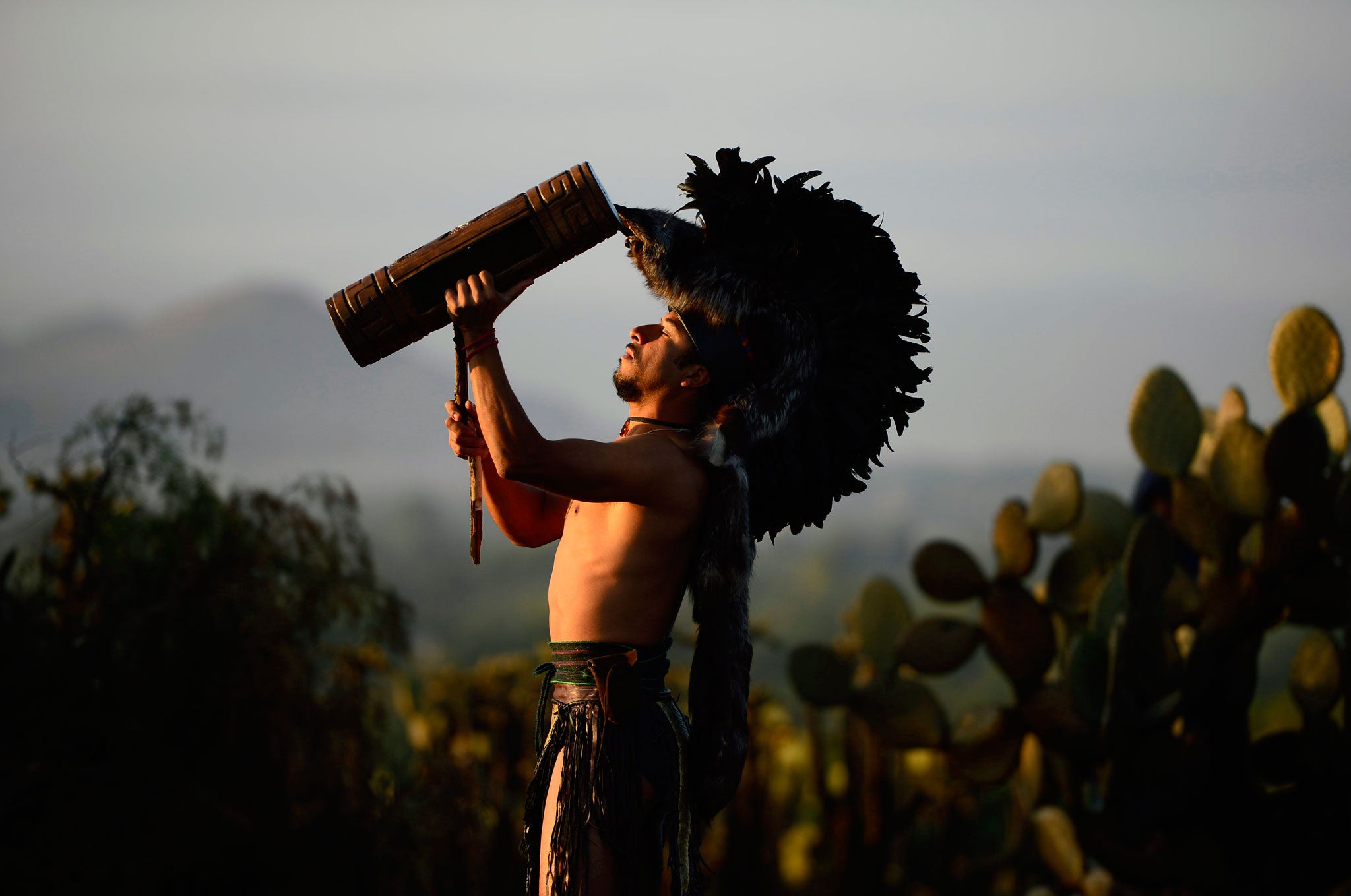Children of the Days: A Calendar of Human History, By Eduardo Galeano, trans. Mark Fried
This chronicle of past times and crimes adds up an almanac of atrocity – and of resistance

Your support helps us to tell the story
From reproductive rights to climate change to Big Tech, The Independent is on the ground when the story is developing. Whether it's investigating the financials of Elon Musk's pro-Trump PAC or producing our latest documentary, 'The A Word', which shines a light on the American women fighting for reproductive rights, we know how important it is to parse out the facts from the messaging.
At such a critical moment in US history, we need reporters on the ground. Your donation allows us to keep sending journalists to speak to both sides of the story.
The Independent is trusted by Americans across the entire political spectrum. And unlike many other quality news outlets, we choose not to lock Americans out of our reporting and analysis with paywalls. We believe quality journalism should be available to everyone, paid for by those who can afford it.
Your support makes all the difference.Eduardo Galeano ends his calendar of human history by drawing on the work of the Roman physician, Sammonicus. His remedy to avoid death was to hang the word "Abracadabra" across your chest night and day: the word "in ancient Hebrew meant and still means, 'give your fire until the last of your days'".
For a reviewer to begin by revealing a book's end is almost heretical, yet in Galeano's case it is apposite. For this deeply humane Uruguayan writer's entire oeuvre is an act of heresy against the status quo. Galeano has given of his fire deep into his vintage: an enemy of falseness and cosy history, of lies parading as truth, of injustice and inequality, he is no friend to the linear narrative - as his latest "history" shows.
Children of the Days offers a fragment of human history for each day of the year. It is a book of outrage. Galeano takes us deep into the murky violence of the past to paint the history of human progress as it is: a desensitised sleepwalking into a void, where enforced overproduction has poisoned us and the world we live in. To illustrate his point, he tells of an eight-year-old Mexican boy messing about by a river in Guadalajara: he fell in and died, not from drowning, but from the toxins seeping into the river from nearby factories. Galeano holds a fragmented mirror to the poisons seeping from our disfigured selves.
The telling of such secret histories makes it easy to see why Galeano is one of Latin America's most influential writers. When he first met President Obama, the late Hugo Chávez pressed one of his books into Obama's hands as a must-read. As in his previous work Mirrors and his masterpiece Memories of Fire, Galeano has taken a lyrical sledgehammer to pat evasions about the historical process. He uses his pithy stories to show both the power of acts of resistance - by women all over the world, indigenous Americans, and maroon African slaves - and the ugliness of the forces oppressing them.
The stories themselves, broken into pieces, present both Galeano's aesthetic and his view of history. The portrait of memory as fragmentary and non-linear reproduces the reality of ageing. At the same time, the shattering of the past into pieces offers a textual embodiment of broken pasts. The impact of this literary approach to the history of violent disappearances is a lasting and universal one.
Whereas in Memories of Fire Galeano treated the history of the Americas, his focus honed by his exile from Uruguay's 1970s dictatorship, in this new book he ranges across Africa, China and Europe. While in Mirrors his history of the world unfolded chronologically, here it moves in precise, devastating circles.
Galeano's real subject is the red-hot forge of human emotions these past two and a half millennia, and everything that has sundered them. His work shows that the neoliberal commodification of culture has not yet turned the idea of the dignified writer into an oxymoron. Toiling away these past three decades, he has produced literature that will endure, like the pre-Columbian pyramids of Caral and the temples of Teotihuacán, monuments to the imagination amid the banality of modern ambition.
Toby Green's novel 'Imaginary Crimes' will be published by Mkuki na Nyota in July
Join our commenting forum
Join thought-provoking conversations, follow other Independent readers and see their replies
Comments